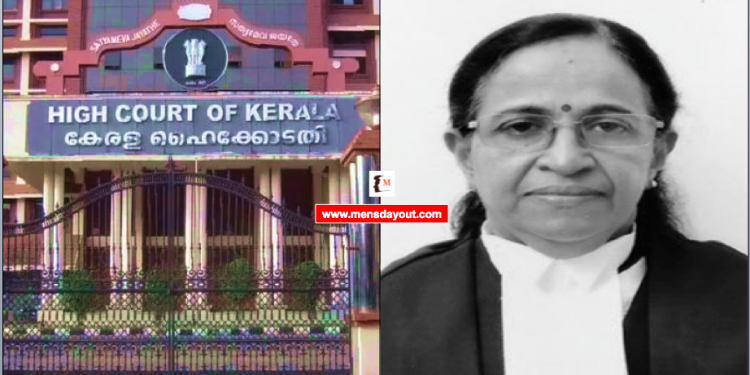In a significant judgment, the Kerala High Court has clarified that presents given to the bride at the time of her marriage for her welfare will not count as dowry under the ambit of Dowry Prohibition Act, 1961.
Allowing a petition filed by an aggrieved husband, Justice M.R. Anitha observed,
Presents given at the time of marriage to the bride without any demand having made in that behalf and which have been entered in a list maintained in accordance with rules made under this Act will not come within the purview of Section 3(1) which prohibits giving or taking of dowry.
Case:
According to the petitioner-husband, 31-years-old, he got married in September 2020 as per Hindu customs and practices. After the marriage, they resided together as husband and wife (25-years-old) at the petitioner’s place. However, the relationship got strained after sometime and the wife allegedly initiated legal proceedings against him by filing a petition before the dowry nodal officer.
Arguments By Husband:
Advocates K.P Pradeep, Hareesh M.R, Rasmi Nair T, T.T Biju, T. Thasmi and M.J Anoopa representing the petitioner argued that the respondent wife’s family deposited all her ornaments in a bank locker in the couple’s name. It was further pointed out that the key to this locker was also with the wife only.
The petitioner argued that District Dowry Prohibition Officer does not have jurisdiction to entertain the petition since the allegation levelled is that the ornaments which were gifted to her for her well being were kept in a bank locker and not yet returned.
Advocate K.V. Anil Kumar and Public Prosecutor Sangeetharaj N.R appeared for the respondents (wife and her family).
Kerala High Court
The high court heard both sides and noted that the very averment was that the ornaments gifted to her for her well being were retained in the locker in a bank under the control of respondents.
Therefore it was held that presents given at the time of marriage to the bride without any demand having made on that behalf will not count as dowry.
Justice M.R. Anitha further found that the Dowry Prohibition Officer will have jurisdiction to pass direction under Rule 6(xv) of the Rules only if it is found that the ornaments directed to be returned to the wife constitute dowry. She quoted,
In the absence of such finding, the Dowry Prohibition Officer will not get any jurisdiction to give direction under Rule 6(xv). Hence the impugned order passed is not sustainable in law and is hereby quashed.
The high court also emphasised on how taking and giving dowry are both equally a crime. Drawing attention to the Section 3 of the Dowry Prohibition Act, 1961, as amended by Act 63 of 1984 (in short the ‘Act’), the high court reiterated,
Penalty for giving or taking dowry:
- If any person, after the commencement of this Act, gives or takes or abets the giving or taking of dowry, he shall be punishable [with imprisonment for for a term which shall not be less than [five years, and with fine which shall not be less than fifteen thousand rupees or the amount of the value of such dowry, whichever is more]. Provided that the Court may, for adequate and special reasons to be recorded in the judgment, impose a sentence of imprisonment for a term of less than [five years].
- Nothing in sub-section (1) shall apply to, or in relation to- (a) presents which are given at the time of a marriage to the bride (without any demand having been made in that behalf). Provided that such presents are entered in a list maintained in accordance with the rules made under this Act; (b) presents which are given at the time of a marriage to the bridegroom (without any demand having been made in the behalf) Provided that such presents are entered in a List maintained in accordance with the rules made under this Act. Provided further that where such presents are made by or on behalf of the bride or any person related to the bride, such presents are of a customary nature and the value thereof is not excessive having regard to the financial status of the person by whom, or on whose behalf, such presents are given].
At the time of hearing, the learned counsel for the petitioner fairly conceded that his party will co-operate to take and hand over the gold ornaments ie. five chains, nine bangles as well as one chain gifted to the petitioner at the time of marriage to the woman.
The high court thus allowed the petition.
ALSO READ –
My Wife Stayed Only For 3-Days; Filed False 498A On Me, My Family Because She Wanted Divorce
Karnataka High Court Quashes FIR Against In-Laws In False 498A|Women Naming All Relatives Without Evidence
NRI Husband: My Wife, Her Family Travelled Everywhere On My Expenses & Later Filed False 498A On Me
Man Sues Wife For Defamation Post Being Acquitted In False 498A Case After 3-Years; Court Admits Case
NRI USA: “My Wife Filed False 498A Within 8-Months Marriage; Now Demanding Rs 2.5 Crore To Withdraw All Cases”
ALSO WATCH –
Interview | Dr Soumi Chatterjee | PhD Thesis On Misuse Of Anti-Dowry Law | Section 498A
Join our Facebook Group or follow us on social media by clicking on the icons below
Join our Facebook Group or follow us on social media by clicking on the icons below
If you find value in our work, you may choose to donate to Voice For Men Foundation via Milaap OR via UPI: voiceformenindia@hdfcbank (80G tax exemption applicable)































